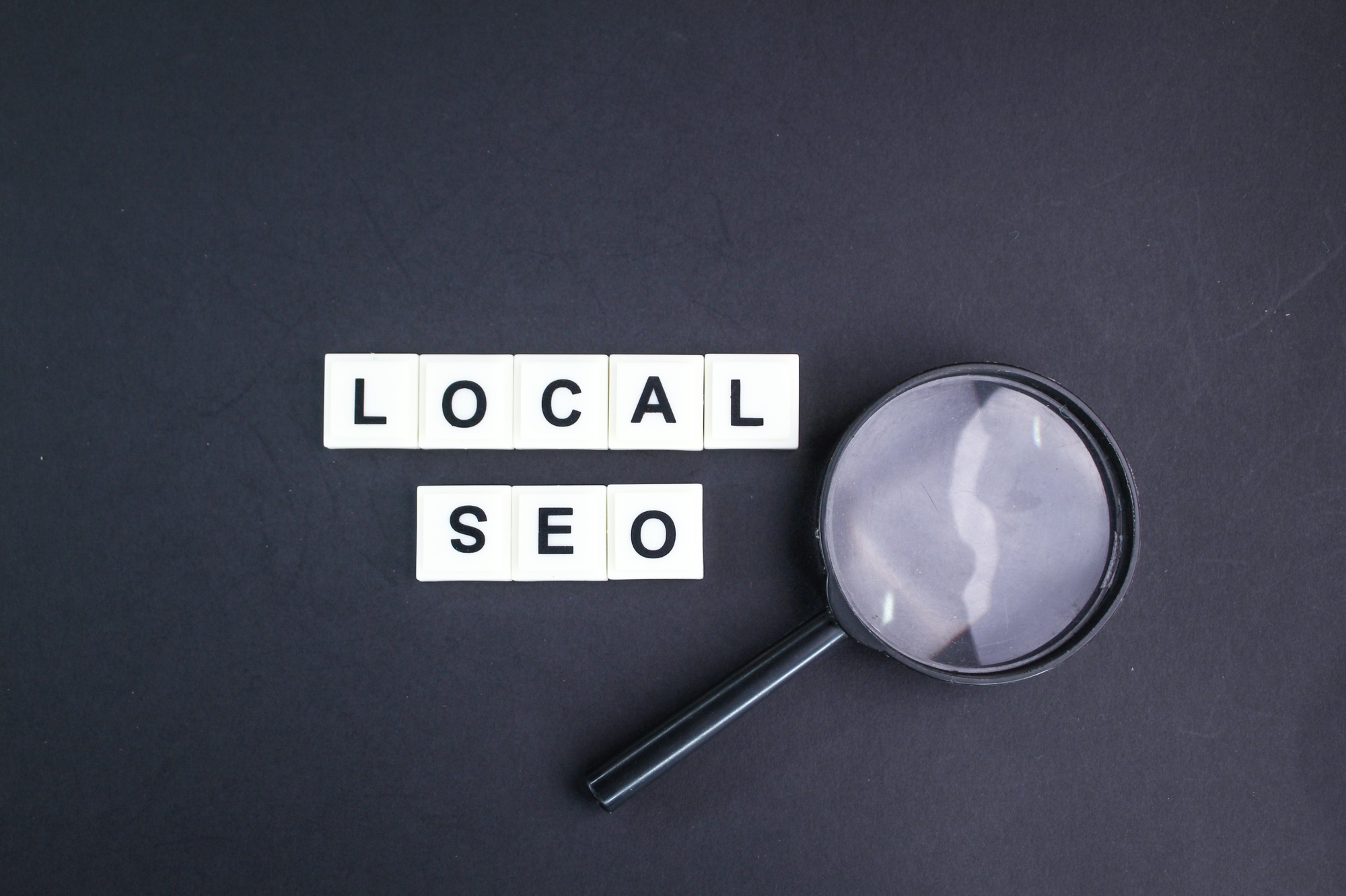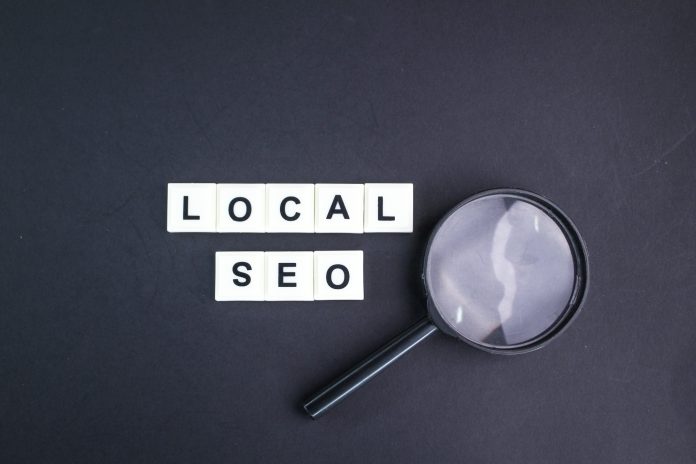Key Takeaways

- Understanding Local SEO: Local SEO optimizes your online presence to attract customers from your geographic area, crucial for small businesses targeting local consumers.
- Key Responsibilities of Local SEO Specialists: They enhance local visibility through strategies like keyword research, on-page optimization, and managing local listings to drive foot traffic and sales.
- Importance of Google My Business: Optimizing your Google My Business listing with accurate information and regular updates is essential for improving online visibility and customer engagement.
- Utilization of Keywords: Incorporating location-specific keywords in content and metadata helps connect your business to potential local customers effectively.
- Management of Online Reviews: Actively managing and responding to customer reviews enhances your reputation and boosts local search rankings.
- Leveraging Tools for Success: Using tools like Moz Local and BrightLocal can enhance your local SEO efforts and tracking performance with Google Analytics is crucial for ongoing optimization.
In today’s digital landscape, local SEO plays a crucial role in helping businesses connect with their community. If you’re a small business owner, understanding what a local SEO specialist does can be a game changer. They focus on optimizing your online presence to attract more customers from relevant local searches.
Local SEO experts employ various strategies to enhance your visibility in search results, ensuring your business stands out when potential customers are looking for services nearby. From managing online reviews to optimizing your Google My Business listing, their job is to drive foot traffic and increase sales by making sure your business is easily found in local search results.
Understanding Local SEO

Local SEO focuses on optimizing your online presence to attract customers in your geographic area. This optimization is crucial for small businesses, as most consumers search for local products and services online. By employing effective local marketing strategies, you can significantly enhance your visibility in search results.
You need to optimize your Google My Business listing to improve local SEO. This includes providing accurate information about your business, such as hours of operation, location, and services offered. Consistent NAP (Name, Address, Phone Number) information across all platforms helps search engines verify your legitimacy.
Managing online reviews is another vital aspect of local SEO. Engaging with customers and responding to reviews—both positive and negative—can boost your business’s reputation. Higher ratings often lead to improved local rankings, as search algorithms tend to favor businesses with positive feedback.
Incorporating location-specific keywords into your website content and social media posts makes it easier for potential customers to find you. Use terms that reflect your services and locality to connect with your target audience effectively.
By focusing on local SEO, your small business can attract more relevant customers from local searches, drive foot traffic, and ultimately increase sales.
Key Responsibilities of a Local SEO

Local SEO specialists focus on enhancing your small business’s visibility in local search results. They employ various strategies that drive local customers to your products or services.
Keyword Research and Strategy
Identifying local keywords is essential for effective local marketing. You should find relevant long-tail keywords, including location names, that potential customers search for. For instance, if you run a coffee shop, using phrases like “best coffee in [your city]” increases your chances of appearing in search results. Consistently integrating these keywords into your website content helps connect your business with local clients.
On-Page Optimization Techniques
Optimizing your website for local search involves using location-specific keywords in headings, page titles, and meta descriptions. You can also include locality in image alt texts and use schema markup to enhance search engine clarity about your business offerings. Focus on providing valuable content that engages your audience while improving your rankings in local search results.
Local Listings Management
Managing your local listings, such as Google My Business, is vital for attracting local customers. Ensure that your business information—name, address, and phone number—is accurate and consistent across all platforms. Posting regular updates and responding to customer reviews enhances your online reputation. Use social media to engage with your audience and share customer feedback, further boosting your local presence.
Tools and Resources for Local SEO

Utilizing the right tools and resources can significantly enhance your local marketing efforts. Here are some essential software and analytics options to consider.
Recommended Software Tools
- Moz Local: Moz Local helps manage your business listings across various platforms, ensuring consistent NAP (Name, Address, Phone Number) information. This tool is beneficial for small businesses that want to boost their online presence.
- BrightLocal: BrightLocal provides suite features for local SEO tasks including citation tracking, reputation management, and local search rank tracking. It’s an all-in-one solution for your local marketing needs.
- Google My Business: Google My Business is crucial for optimizing your online visibility. You can manage your business profile, update information, and engage with customer reviews.
- SEMrush: SEMrush offers robust keyword research tools and competitors’ analysis, helping you find relevant long-tail keywords for your local audience.
Tracking and Analytics
Tracking your performance is vital for effective local SEO. Use these tools to analyze your results:
- Google Analytics: Google Analytics provides insights into your website’s traffic, user behavior, and conversion rates. You can track which local keywords drive the most visitors to your site.
- Google Search Console: Google Search Console helps monitor your website’s presence in Google search results. It gives information on keyword performance and site indexing, assisting in optimizing your local content.
- Social Media Analytics Tools: Platforms like Facebook Insights and Twitter Analytics allow you to evaluate engagement on your social media posts. Understanding customer interactions helps improve local marketing strategies.
Leveraging these tools and resources strengthens your local SEO efforts, ultimately driving more customers to your small business.
Importance of Local SEO in Business Growth

Local SEO plays a vital role in the success of your small business. It enables you to connect with nearby customers searching for products and services like yours. With over 46% of all Google searches seeking local information, not optimizing for local SEO means missing out on a significant customer base.
Implementing local SEO strategies enhances your visibility in local search results. When potential customers search for “best coffee in [your city],” your business appears prominently if you’ve optimized your online presence with location-specific keywords. By leveraging tools such as Google My Business, you ensure that your business information is accurate, which fosters trust and encourages visits.
Engaging in local marketing through consistent customer reviews strengthens your online reputation. You attract more customers by actively managing feedback and responding to reviews. This interaction also signals to search engines that your business is legitimate and responsive.
Using social media as part of your local SEO strategy further expands your reach. Sharing location-based content and interacting with local audiences increases brand awareness. This approach not only helps to build a loyal customer base but also drives traffic to your physical location.
By focusing on local SEO, your small business can increase foot traffic, enhance customer engagement, and ultimately drive sales, establishing a strong presence in your community.
Conclusion

Embracing local SEO is essential for your business’s success in today’s digital landscape. By leveraging the expertise of a local SEO specialist, you can enhance your online visibility and connect with potential customers in your area.
Implementing effective strategies like optimizing your Google My Business listing and managing customer reviews will not only improve your search rankings but also build trust within your community.
As you focus on local SEO, remember that consistent engagement and accurate business information are key to attracting more customers and driving sales. Take the steps necessary to strengthen your local presence and watch your business thrive.
Frequently Asked Questions

What is local SEO and why is it important for small businesses?
Local SEO focuses on optimizing a business’s online presence to attract customers in a specific geographic area. It helps small businesses appear in local search results, increasing visibility and foot traffic. Given that many consumers search online for nearby products and services, effective local SEO is crucial for driving sales.
How can a local SEO specialist help my business?
A local SEO specialist can enhance your online presence by optimizing your Google My Business listing, managing online reviews, and ensuring your business information is consistent across different platforms. Their expertise in keyword research and on-page optimization helps improve local rankings, attracting more customers to your business.
What strategies do local SEO specialists use?
Local SEO specialists use various strategies, including managing online reviews, optimizing Google My Business listings, and utilizing location-specific keywords. They also focus on maintaining consistent NAP (Name, Address, Phone Number) information, conducting keyword research, and enhancing customer engagement on social media to boost local visibility.
How important are online reviews for local SEO?
Online reviews are critical for local SEO as they influence consumers’ trust and decision-making. Engaging with reviews and maintaining a positive reputation can enhance your business’s visibility in local search results, ultimately driving more traffic to your website and physical location.
What tools are recommended for improving local SEO?
Useful tools for local SEO include Moz Local for managing business listings, BrightLocal for citation tracking, and Google My Business for visibility optimization. Additionally, SEMrush assists in keyword research, while Google Analytics and Google Search Console help monitor website performance and effectiveness of local strategies.
How can I track the effectiveness of my local SEO efforts?
You can track local SEO effectiveness using tools like Google Analytics to monitor website traffic, user behavior, and conversion rates. Google Search Console allows you to analyze keyword performance and indexing issues, while social media analytics tools help evaluate engagement and reach, informing your marketing strategies.
How do location-specific keywords impact local SEO?
Incorporating location-specific keywords into your website content and social media posts enhances local SEO by helping search engines understand your business’s relevance to local searches. This connection can improve your rankings in search results, attracting customers looking for products or services in your area.
What are the benefits of optimizing Google My Business?
Optimizing your Google My Business listing improves your visibility in local search results, allows you to manage customer reviews, and provides essential business information to potential customers. A well-optimized listing can greatly enhance foot traffic and online engagement, making it vital for local SEO success.
Image Via Envato



